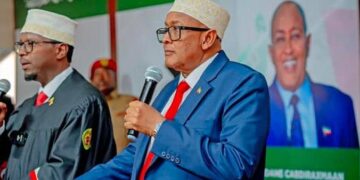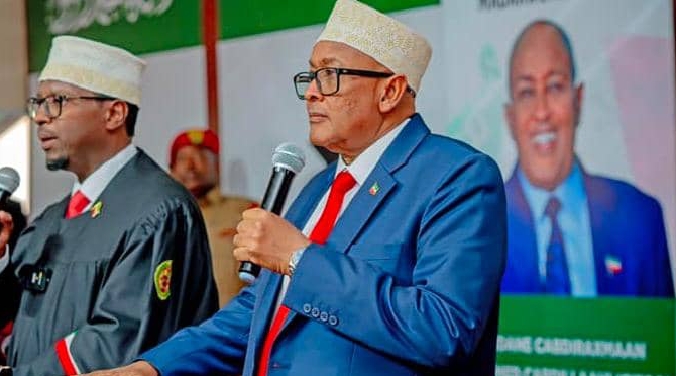By Enyichukwu Enemanna
Somaliland, Somalia’s breakaway region, on Thursday swore in its new President, former opposition leader Abdirahman Mohamed Abdullahi, who has become the region’s 6th President.
His inauguration took place just a day after Somalia and Ethiopia agreed in Turkey to hold “technical talks” over a dispute triggered by a deal Somaliland made with Ethiopia.
The agreement involves Somaliland granting Ethiopia access to construct a port in exchange for recognition as an independent nation.
In his inaugural speech in the region’s capital, Hargeisa, President Abdullahi, who defeated the incumbent Muse Bihi Abdi, pledged to strengthen foreign policy and intensify efforts to gain international recognition for Somaliland, citing a “valid legal argument” for its sovereignty.
“On the international stage, we will advance Somaliland’s case for recognition, emphasising our historical and legal legitimacy. Our resilience and democratic achievements stand as a testament to our readiness to contribute to regional stability and global peace,” he stated.
In 1991, Somaliland declared its secession from Somalia, but it has not been recognised by the African Union, the United Nations, or any other country as an independent state. Instead, it is regarded as a territory of Somalia.
At Thursday’s inauguration, U.S. Ambassador to Somalia Richard H. Riley congratulated Somaliland on the election and encouraged collaboration with the new administration.
“The people of Somaliland have set an example of democracy not only for this region but for Africa and the world. We are proud to be your friends and partners for the future,” he said.
Abdullahi, 69, of the opposition Waddani Party, secured more than 50% of the votes in the 13 November presidential election, defeating Bihi, who sought a second term after seven years in office.
The new president is expected to prioritise advancing the region’s case for international recognition and reassessing its regional agreements, including the deal with Ethiopia.
Somaliland has a functioning government and institutions, its own political system enabling democratic transfers of power between rival parties, a distinct currency, passport, and armed forces. However, it has not achieved international recognition in the last 34 years.




































